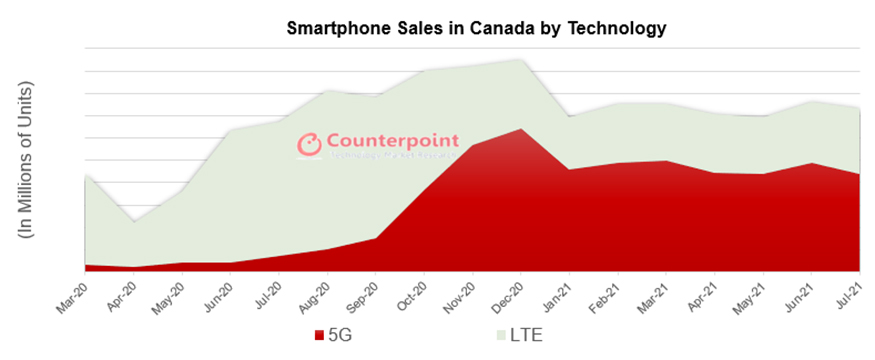Rogers, Telus and Bell are among the best in the world at providing players reliable 5G network connections for smooth mobile gaming experiences, according to independent analytics company Opensignal.
The telecom giants each took home a “Global Leader” distinction at Opensignal’s 2021 5G Global Mobile Network Experience Awards, with all three scoring above the global average of 76.7 points out of a possible 100 in the “5G Games Experience” category.
Points are earned by measuring network conditions that affect mobile gaming for players, such as “latency, packet loss and jitter.”
Among the Canadian carriers, Rogers led with 86.4 points, followed closely by Telus with 83 and Bell with 83.5.
The seven winners in the “5G Games Experience” category were South Korea’s KT, SK Telecom and LG U+, the Netherlands’ T-Mobile and KPN, Singapore’s Singtel, and Ireland’s Vodafone.
Rogers, Telus and Bell were also recognized in the “Games Experience — 5G Global Impact” category, which measures the improvement in games experience between a carrier’s 5G network versus its 4G network.
In this category, Rogers came out ahead of its Canadian competitors, with Opensignal noting a 17.2 percent improvement between the carrier’s 5G vs. 4G gaming experience, while Telus (13.8 percent) and Bell (13.4 percent) were once again closely ranked.
For context, the global average score for the “Games Experience — 5G Global Impact” category is only 8.2 percent.
Still, “5G Games Experience” and “Games Experience” were the sole categories in which Canada-based telecom companies were recognized.
The other seven categories — with no Canadian winners — were “5G Availability,” “5G Download Speed,” “5G Upload Speed,” “5G Video Experience,” “Download Speed,” “Upload Speed,” and “Video Experience.”
To see if your own 5G internet service is up to snuff, Opensignal released an app in May 2021 that lets users independently check whether they’re actually connected to a 5G network.
Source: Opensignal






